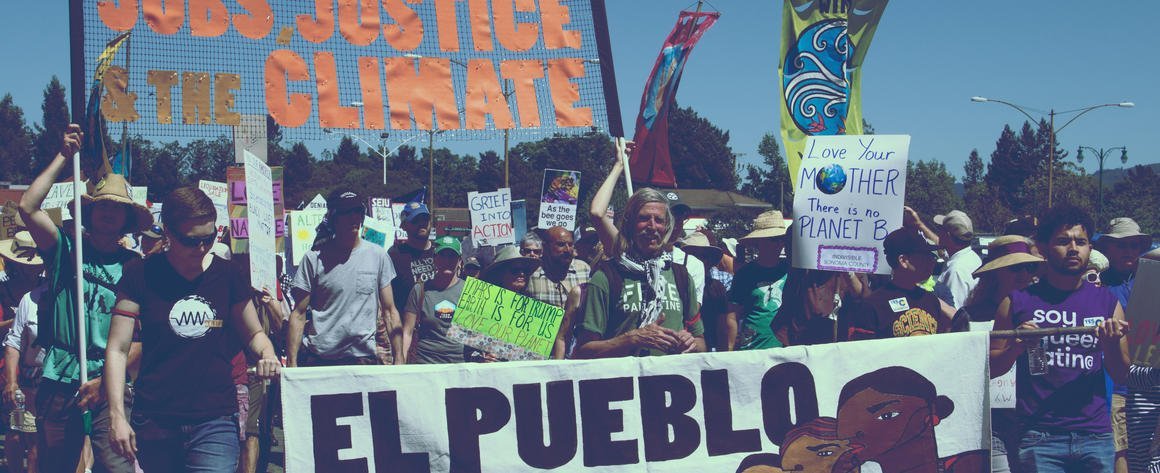Index of Systemic Trends 2024
This is the second edition of our Index of Systemic Trends for the United States. The trends considered include poverty, wealth inequality, racial wealth inequality, income inequality, wage stagnation, the cost of higher education, homeownership, corporate taxation, taxation of the rich, labor union density, incarceration rates, healthcare costs, climate change, and life expectancy, among others.
The power of community utilities
The United States urgently needs to transition off of fossil fuels and onto clean sources of energy (especially renewable energy) to maintain a livable climate. As of 2020, only around 21% of the United States electrical grid was powered by renewable energy sources.
Democratizing knowledge: Transforming intellectual property and research and development
The current public health crisis is demonstrating how deficiencies in our approach to intellectual property (IP)—a unique set of rights and protections that applies to the creations of the human intellect—and research and development (R&D) imperil the health, safety, and livelihoods of millions of people around the world.
COVID-19 and 21st century public ownership
In January 2020, Common Wealth and The Democracy Collaborative began a year-long project that explored how extending the models and approaches of democratic public ownership to the new frontiers of the 21st-century economy could help address the deep economic, social, and environmental challenges facing the US and UK.
A Common Platform: Reimagining data and platforms
On October 20, 2020, the US Department of Justice filed an antitrust action against Google, the first step in what might be one of the biggest anti-monopoly cases of this century.
Democratic digital infrastructure
The global spread of COVID-19 has shone a bright spotlight on both the vital need for reliable high-speed internet and the inadequacies of the for-profit, corporate model in delivering it.
The case for public ownership of the fossil fuel industry
The U.S. fossil fuel industry continues to seek bailouts during the COVID-19 crisis, as global oil demand craters and crude oil floods an already oversupplied market. These twin phenomena have combined to crash the price of oil, threatening the stability of the U.S. oil and gas sector.
Ownership Futures: Towards democratic public ownership in the 21st century
Our current political economic system is in crisis. Forty years of market fundamentalism, privatization, and unchecked corporate power have led us to the point of ecological collapse, increasing economic and social inequality, and dangerous political instability and backlash.
A History of Nationalization in the United States: 1917-2009
Climate change is an unprecedented global social, political, and economic crisis. Without drastic action, the United States will likely experience rising sea levels that will regularly flood major cities, more intense weather patterns that will destroy homes and businesses, longer and deeper droughts that will disrupt agricultural production, and an increase in disease that will put stress on the healthcare system.
Right To Own: A policy framework to catalyze worker ownership transitions
This report explores the “right to own”—giving workers the right of first refusal anytime their workplace is up for sale—as a strategy to massively scale up employee ownership in the economy.
Energy democracy: taking back power
Electric utility (re)municipalization is gaining popularity as a strategy to shift away from a reliance on fossil fuel extraction in the context of combating climate change.
The Systemic Roadblocks to Climate Action
The challenge of mounting an adequate response to climate change has to be understood within the context of the larger systemic crisis facing the United States. The 1972 Limits to Growth, published when environmental movements were forming in this country, emphatically explained that our economic system was incompatible in the long term with the health and productivity of our finite planet.
Introduction: The Green Transition and the Next System
When the Global Climate Action Summit convenes in San Francisco on September 12, 2018, one goal will be to affirm that the world beyond the Trumpian miasma is “still in” the Paris Accords. But the Summit seeks also to “demonstrate that stronger commitments are necessary, desirable and achievable.”
Public Ownership for Energy Democracy
Energy democracy—a new idea from the ranks of community organizers, labor, and renewable energy advocates who see our current energy system as broken and destructive—seeks to take on the political and economic change needed to tackle the energy transition holistically.
Taking climate action to the next level
For over forty years we have known that avoiding disastrous climate change requires breaking fossil fuels’ hold on our economy and way of life. Yet, throughout all that time, debate, negotiations, and actions have fallen short in triggering, never mind managing, an energy transition.
Quantitative Easing for the Planet
Across the political spectrum, conventional wisdom holds that technology and finance remain the greatest obstacles to moving society beyond fossil fuel dependency. Yet, neither is the real reason why progress on climate action has stalled for decades.
Out of Time: The case for nationalizing the fossil fuel industry
For decades, scientists have been predicting catastrophic levels of global heating if society does not change course. The relatively simple models that were in play when Dr. James Hansen first testified to the U.S. Congress in 1988, warning members that global heating posed a serious threat, have proven to be remarkably accurate.
Addressing the Systemic Challenge at the Heart of Escalating Inequality and Environmental Destruction
While much good work has been done on the inequality issue, the very bitter truth is that despite our best efforts, inequality is growing dramatically in nations around the world, including here in the United Kingdom and in most of Europe.
Framing the challenges of a next system after fossil fuels
In the paper, Next System Project co-chairs Gar Alperovitz and Gus Speth, together with NSP Executive Director Joe Guinan and Democracy Collaborative President Ted Howard...
New Political-Economic Possibilities for the Twenty-First Century
Confronted with mounting social, economic, and ecological crises, growing numbers of Americans have begun to realize that traditional strategies and reformist approaches no longer work.




















